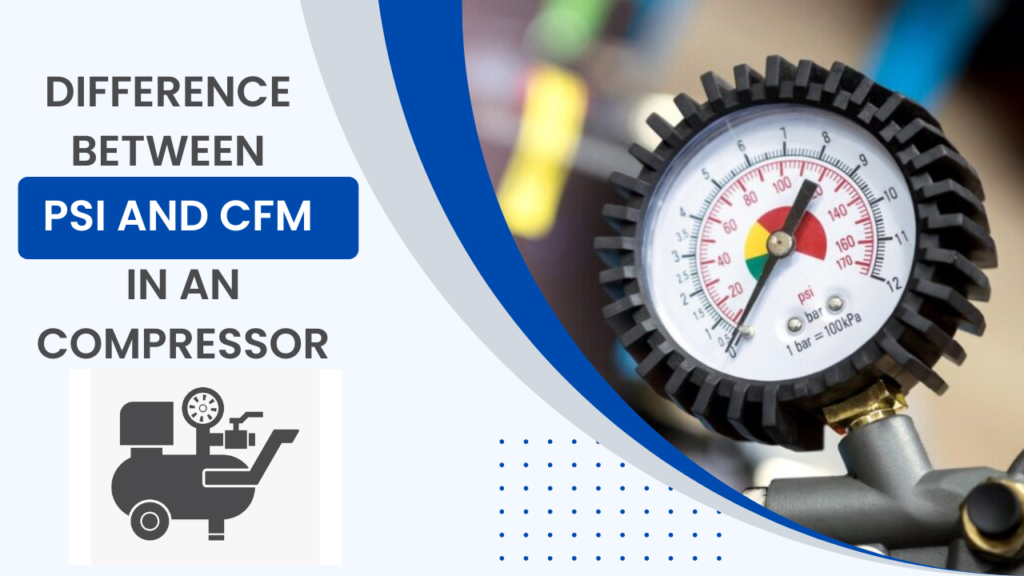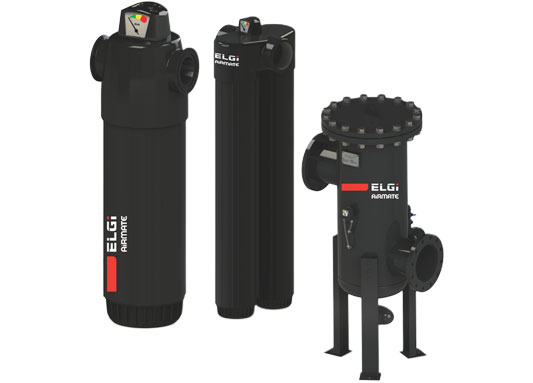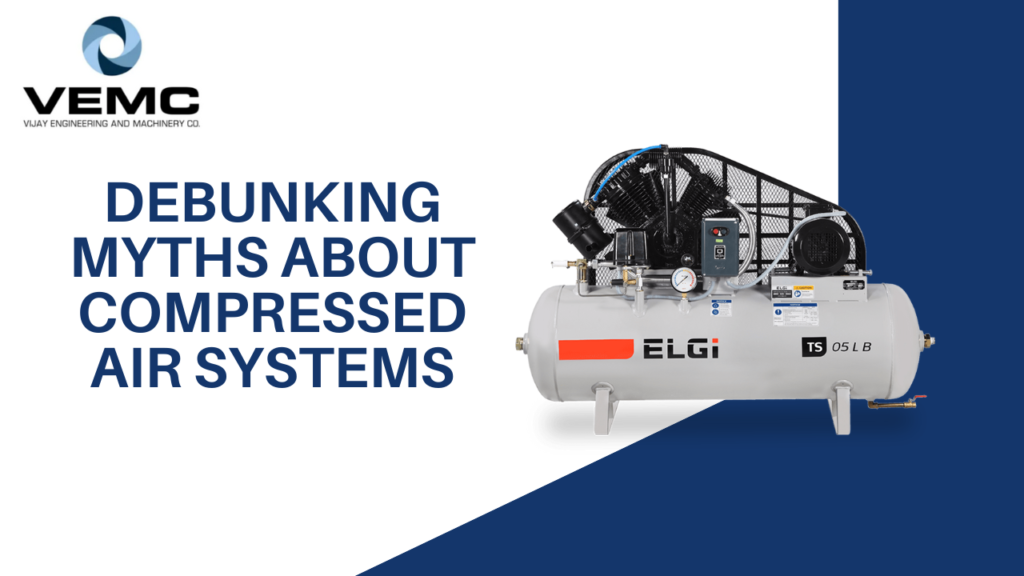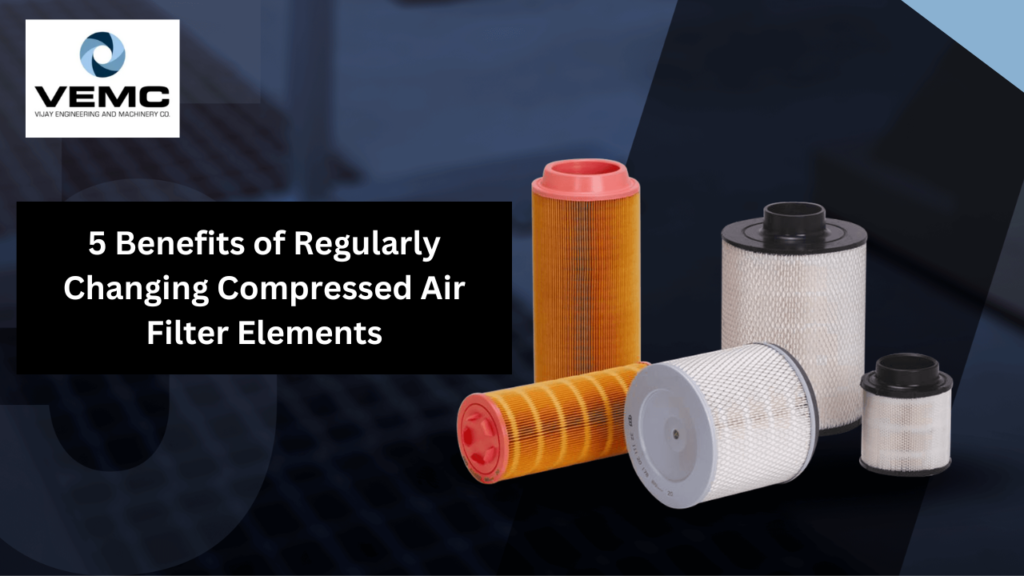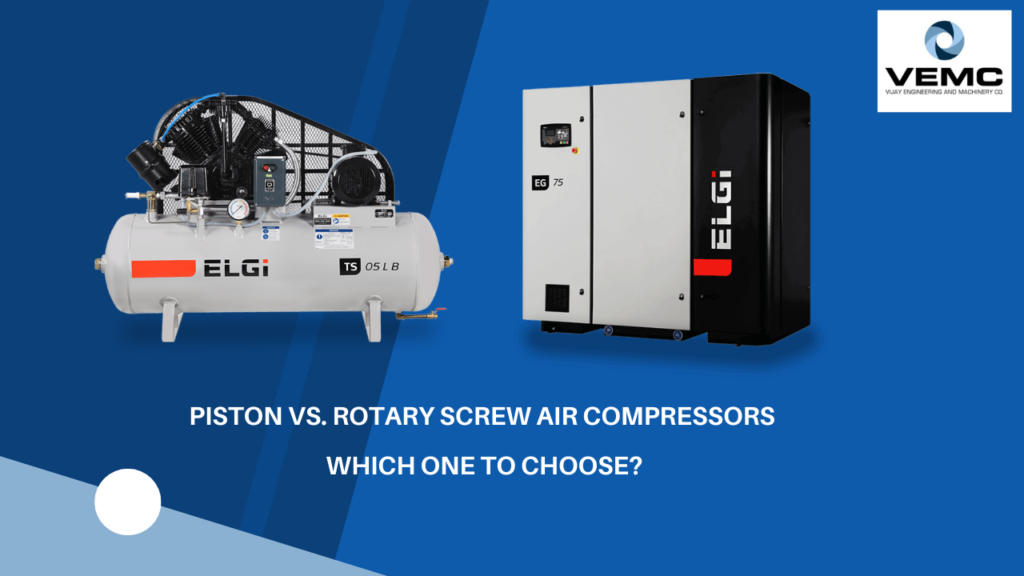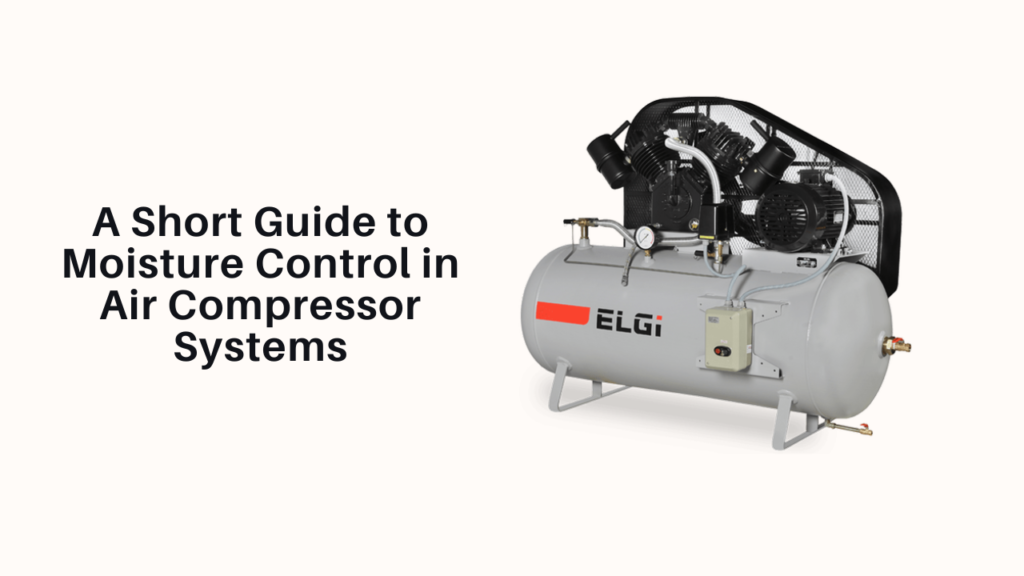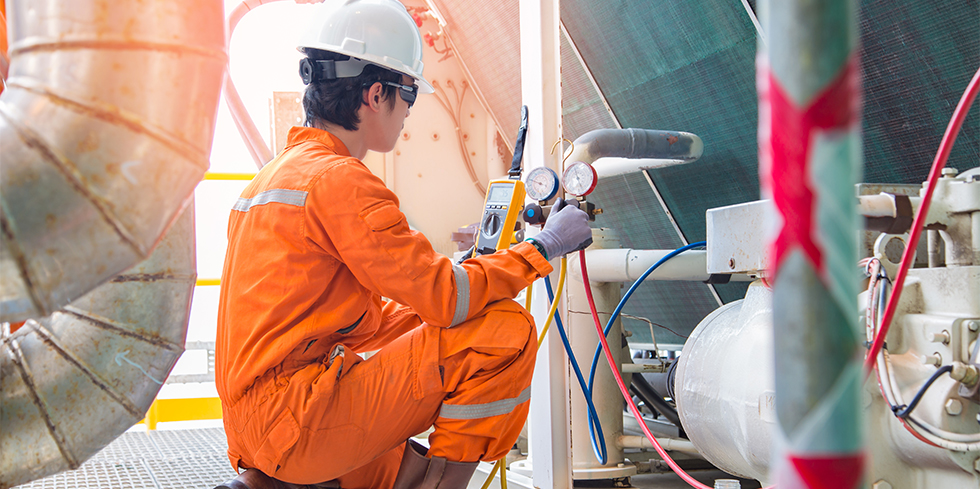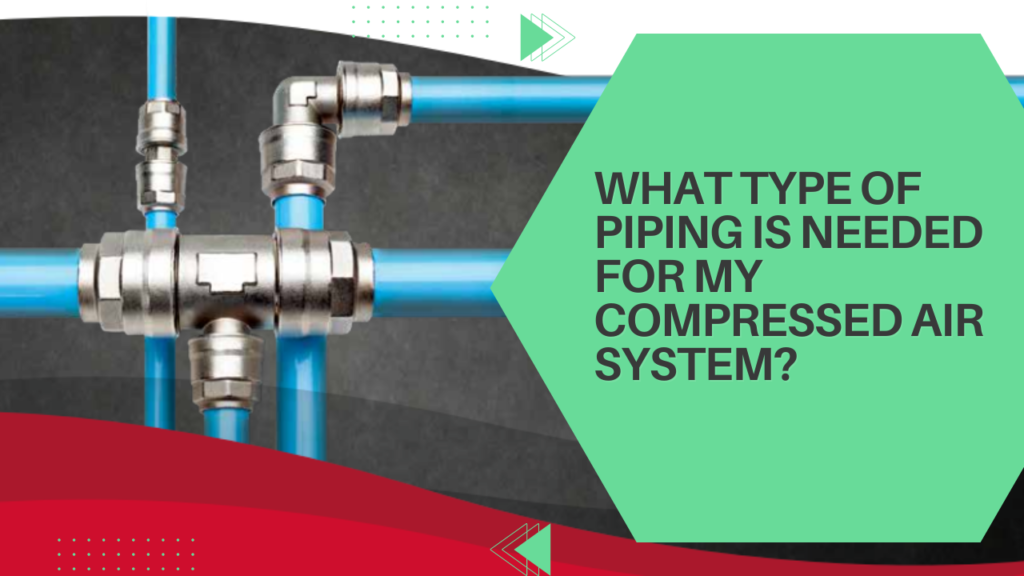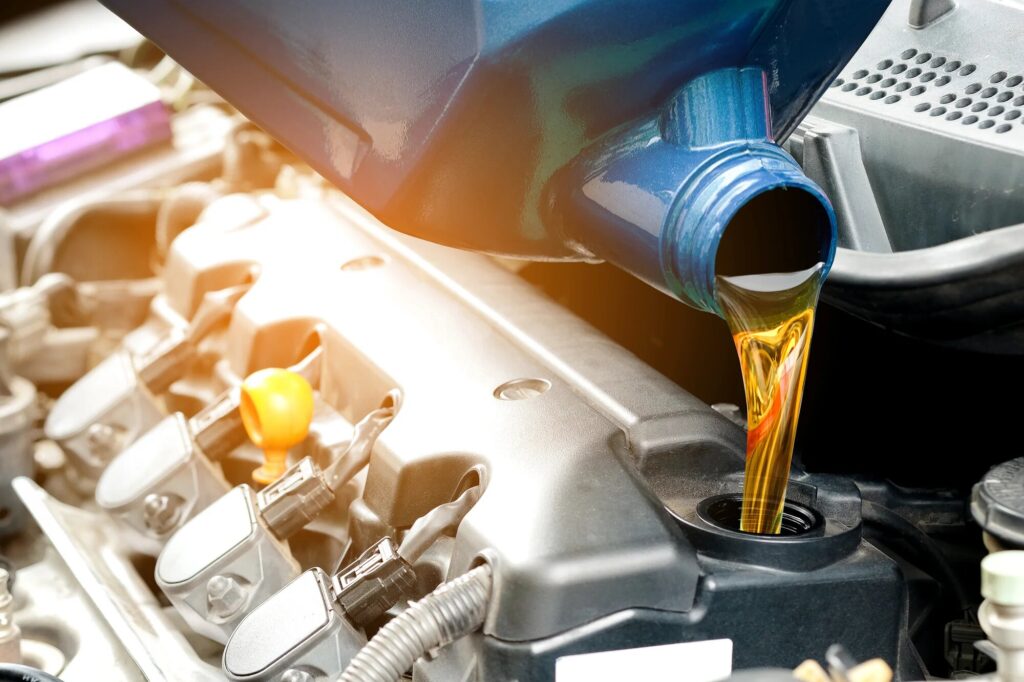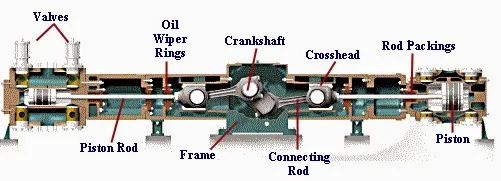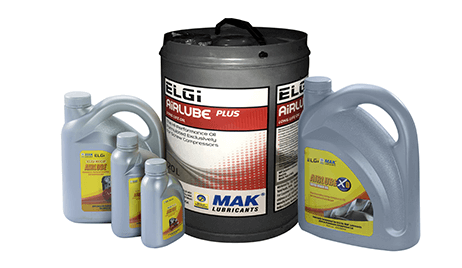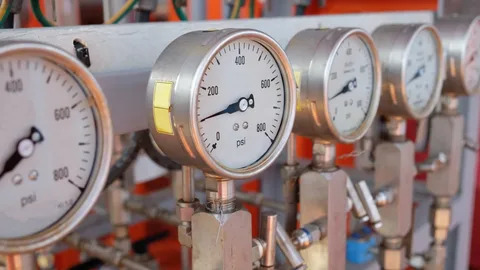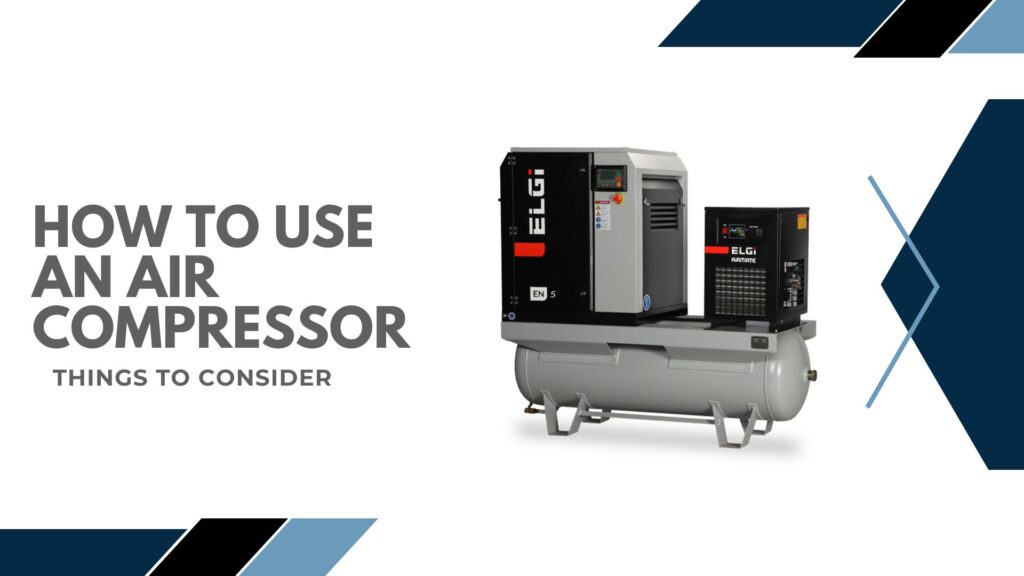
A number of things need to be considered while using an air compressor for your operations. These include maintaining the right parameters like pressure, checking oil levels, having safety measures in place, etc. In this blog, we take you through all these aspects in detail.
Picking the right compressor for your needs
For domestic purposes, the most commonly used air compressor is the reciprocating piston type. This works by reducing the space to increase the pressure of the air inside the compressor. This is quite similar to the working of an internal combustion engine.
For industrial purposes such as large refrigeration or pneumatic tools, rotary screw air compressors are mostly used. These work by compressing the air inside in a continuous sweeping motion, thus avoiding any pulsations that may occur in a reciprocating piston-type compressor.
Getting started
- Place your compressor in the right position. Ensure that the compressor is on an even and stable surface and the power source is always grounded.
- Turn the power on and allow your compressor to run for a minute.
- Set the psi as per your requirements. Adjust the pressure till you reach the recommended pressure for a particular tool.
- Connect the air hose and the tool you’re going to be working with.
Oil and air intake
- Check the level of oil in your compressor. Add oil by removing the cap and filling up to the mark if required.
- Check the drain valve located at the bottom of the air tank. Make sure it is tightly closed.
Moisture and drainage
It is necessary to remove excess moisture from your air compressor at frequent intervals. This is usually done through the drain valve present at the bottom of the air tank. Wrench open the valve, allow the condensed moisture to flow out, and replace the valve. Always store the air compressor in a cabinet away from moisture.
Power
Make sure you turn off the compressor’s switch before you plug it into a three-pronged socket. As much as possible, avoid using extension cords if you’re unable to reach the spot of operations comfortably. Instead use an additional air hose and plug it into the first one. Extension cords can cause overheating of the air compressor.
Meeting all safety regulations
- Always use polycarbonate goggles and closed-toe shoes while operating the air compressor.
- Pull on the safety valve to test if it works.
- Ensure you are only applying the right amount of pressure for a particular operation and as per the requirements of a particular tool. Try to maintain the pressure on a slightly lower side for safety.
- Only operate the tool while there is air in the tank.
For more tips or information on how to best use your air compressor systems, feel free to get in touch with us at 022 43436655 or email us at marketing@vemc.co.in. VEMC is the authorised Elgi compressor dealer with an experience of over 72 years.


